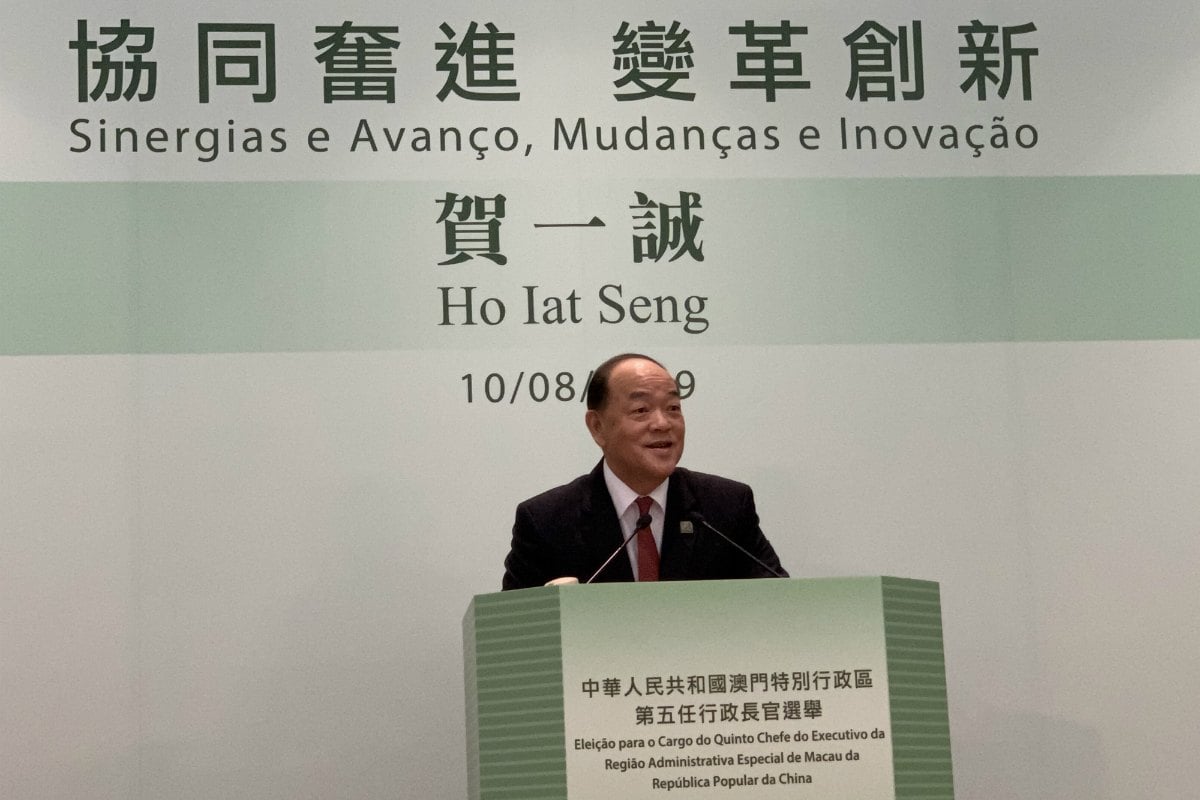Incoming Macau Chief Executive Opposes Hong Kong Protests, Committed to China
Posted on: August 22, 2019, 12:40h.
Last updated on: August 23, 2019, 12:49h.
Ho Iat Seng, Macau’s next chief executive, says he’s opposed to the ongoing protests in Hong Kong, and instead favors bolstering the casino enclave’s already strong relationship with mainland China.

Macau and Hong Kong are the two Special Administrative Regions (SAR) of the People’s Republic, but there’s been a political upheaval in the latter since June. The protests stem from an extradition bill introduced in Hong Kong that would allow authorities to transfer people wanted in mainland China and Taiwan.
The legislation, which has since been temporarily shelved, is viewed by many Hong Kong citizens as undermining the autonomous nature of the SAR.
Ho wants to make sure the unrest doesn’t bleed across the Pearl River Delta to Macau. If protests arise in the much smaller Macau (both in population and land area), businesses and casinos could be hurt.
Many people expressed they do not want to mess up Macau,” Ho said this week, as reported by Reuters. Ho isn’t overly concerned that the Macau people will protest, as the enclave has enjoyed a closer relationship with the mainland than Hong Kong.
China has praised Macau for being an exemplar of the “one country, two systems” concept. Roughly 50 percent of Macau’s 600,000 residents immigrated from China, which has helped promote a stronger connection with the mainland over the decades.
Ho will be formally voted to chief executive this weekend, and assume the role on December 20. He is the only candidate approved for the job.
Critical Years
Ho is set to become just the third chief executive of Macau since the enclave was returned from Portugal to China in 1999. His tenure will oversee vital decisions that will have a lasting impact on the future of the territory and its economy.
The six licensed casino operators that won $37.8 billion last year will all see their concessions expire in 2022. Macau’s government is reviewing the regulations and conditions that will govern the gaming industry in its next chapter, but all six companies are expected to be granted new permits.
The trade tensions between the US and China present a more immediate challenge for Ho, as it’s unlikely the tariff war will be settled before he takes office. The politician says the outcome has serious consequences for the Macau economy.
Enclave Encore
Ho has no ties to the gaming industry, unlike his two predecessors – Edmundo Ho (no relation), and current chief executive Fernando Chui. Ho said he wants “healthy” development for the casinos, but being a strong ally to Beijing, that could mean more non-gaming investments.
Macau Liaison Office Director Fu Ziying represents the enclave in the federal government in Beijing. He recommended earlier this year the SAR take steps to reduce its dependency on casino revenue and subsequent tax income.
Revenue from casinos account for nearly 90 percent of taxes collected by the Macau government. With gross gaming revenue taxed at an effective rate of between 38-39 percent, the enclave took in around $14.5 billion in casino taxes last year.
Fu, as well as a recommendation from the International Monetary Fund, suggest Macau would be smart to offer casino operators incentives that encourage them to develop non-gaming attractions. That could involve new entertainment, such as theme parks, as well as more convention space.
No comments yet